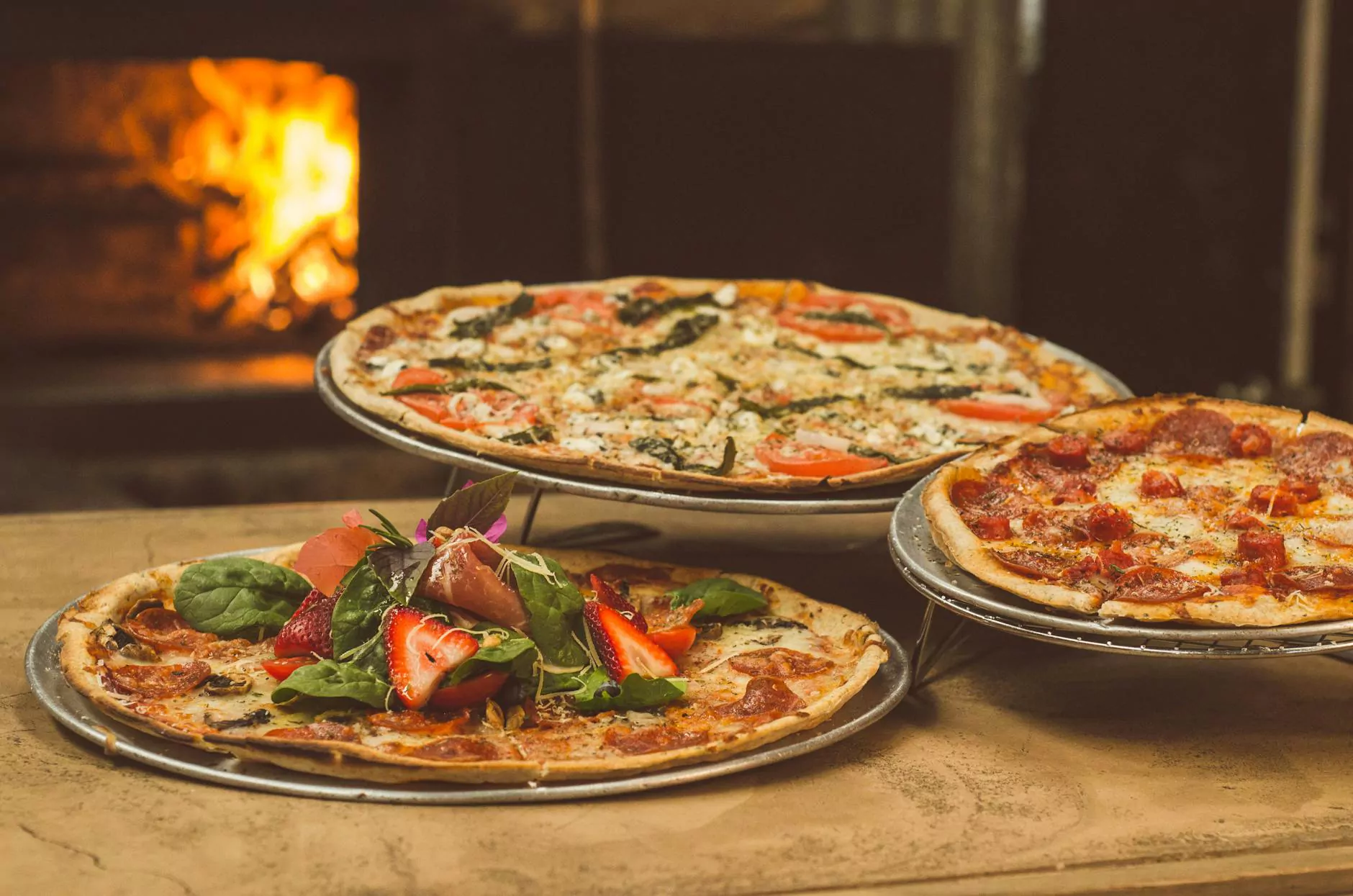Positive Impact of Indian Cuisine and Restaurants

Introduction
India's diverse culture is beautifully reflected in its culinary traditions. The delicious flavors, aromatic spices, and authentic Indian recipes have gained immense popularity worldwide. In this article, we will explore the positive impact of Indian cuisine and restaurants on the global culinary scene, highlighting their artistry, rich history, and growing influence.
The Cultural Significance of Indian Food
Indian food is more than just a source of sustenance; it is embedded in the rich tapestry of Indian culture. Each region boasts its unique culinary specialties, influenced by historical, social, and geographical factors. Indian cuisine captures the essence of vibrancy, tradition, and community gathering, making it a truly immersive dining experience.
Aromatic Spices and Flavorful Ingredients
One of the defining characteristics of Indian cuisine is the impressive array of spices used in each dish. From fragrant cumin and coriander to pungent cardamom and turmeric, these spices add depth, complexity, and a burst of flavors to traditional Indian recipes. The distinct use of fresh herbs, vegetables, legumes, and meats further adds to the diverse culinary landscape of the country.
Regional Diversity
India's regional diversity offers an extensive range of flavors, cooking techniques, and ingredients. From the spicy curries of Kerala to the rich Mughlai dishes of North India, each region creates its unique culinary identity. Indian restaurants worldwide embrace this diversity, showcasing the variety and versatility of Indian cuisine, making it accessible to people from all walks of life.
The Rise of Indian Food and Restaurant Industry
India's booming restaurant industry has gained attention globally for its innovation, authenticity, and business acumen. Here, we will explore how Indian food has earned a prominent place on the culinary stage and how the restaurant industry has evolved to meet the demands of food enthusiasts worldwide.
Global Popularity
Indian food has seen a substantial rise in popularity over the past few decades. Its unique flavors and healthful ingredients have not only won the hearts of Indians but also captivated people from various parts of the world. This popularity has fueled a demand for Indian restaurants globally, making it a significant force in the international food scene.
Authenticity Meets Fusion
While authenticity remains a crucial aspect of Indian cuisine, the fusion of traditional Indian flavors with other global cuisines has gained immense traction. Indian chefs and restaurateurs have embraced this creative approach, resulting in exciting new dishes and culinary fusions that cater to evolving tastes and preferences. The ability to adapt and experiment has helped Indian food maintain its relevance and appeal in a dynamic global market.
Culinary Tourism and Indian Restaurants
Indian restaurants play a vital role in promoting culinary tourism and introducing people to the rich heritage of Indian cuisine. Their commitment to quality, authenticity, and excellent service has garnered international recognition. Let's explore the significance of Indian restaurants in fostering cultural exchange and promoting India as a culinary destination.
Preserving Culinary Traditions
Indian restaurants overseas serve as cultural ambassadors, preserving traditional recipes, cooking techniques, and hospitality customs. These establishments create an opportunity for locals and tourists to experience the true authenticity of Indian food in a comfortable and welcoming environment. Moreover, Indian restaurants actively promote Indian culture, art, and traditions through their decor, music, and customer experiences.
Exploring Regional Specialties
Indian restaurants often embrace the diversity of Indian cuisine, featuring regional specialties on their menus. The ability to savor dishes from different parts of India within a single restaurant allows patrons to explore various flavors and expands their understanding of Indian culinary traditions. This exposure to regional specialties fosters curiosity and appreciation for the vastness of Indian food culture.
The Future of Indian Cuisine and Restaurants
The future of Indian cuisine and restaurants is incredibly promising, poised to reach even greater heights of popularity and global recognition. Here are some key factors that will contribute to the continuous growth and positive impact of Indian food on the culinary landscape.
Embracing Health and Sustainability
As the world becomes more health-conscious, Indian cuisine stands out for its use of wholesome ingredients, vegetarian options, and balanced cooking techniques. Indian restaurants have the opportunity to lead the charge in offering healthier choices while maintaining the flavors and authenticity that make Indian food so special. Sustainability initiatives, such as sourcing local and organic ingredients, can further contribute to a positive environmental impact.
Technology and Innovation
The use of technology and innovation in the Indian restaurant industry can streamline operations, enhance the dining experience, and attract a broader audience. Digital platforms, online ordering systems, and interactive experiences can help establish a strong online presence while providing convenience to customers. Embracing technology trends provides an opportunity for Indian restaurants to connect with a tech-savvy audience and stay relevant in an ever-evolving digital landscape.
Cross-Cultural Collaborations
Collaborations between Indian chefs and international culinary experts can lead to exciting gastronomic exchanges, driving innovation and creativity in Indian cuisine. These collaborations create a synergy that transcends borders, allowing for the fusion of ideas and flavors from diverse culinary backgrounds. Such cross-cultural collaborations not only enhance the dining experience but also fuel the global recognition and appreciation of Indian cuisine.
Conclusion
Indian cuisine and restaurants have undoubtedly made a lasting positive impact on the global culinary scene. The rich flavors, cultural significance, and diverse regional specialties have captivated food enthusiasts worldwide. As the industry continues to evolve with the changing preferences and demands of consumers, Indian restaurants have a unique opportunity to share the magic of Indian food, preserve culinary traditions, and create memorable dining experiences. The future is indeed bright for Indian cuisine, and the world awaits new flavors, innovative approaches, and the joyous celebration of Indian culinary heritage.
didi ki chudai ki kahani









